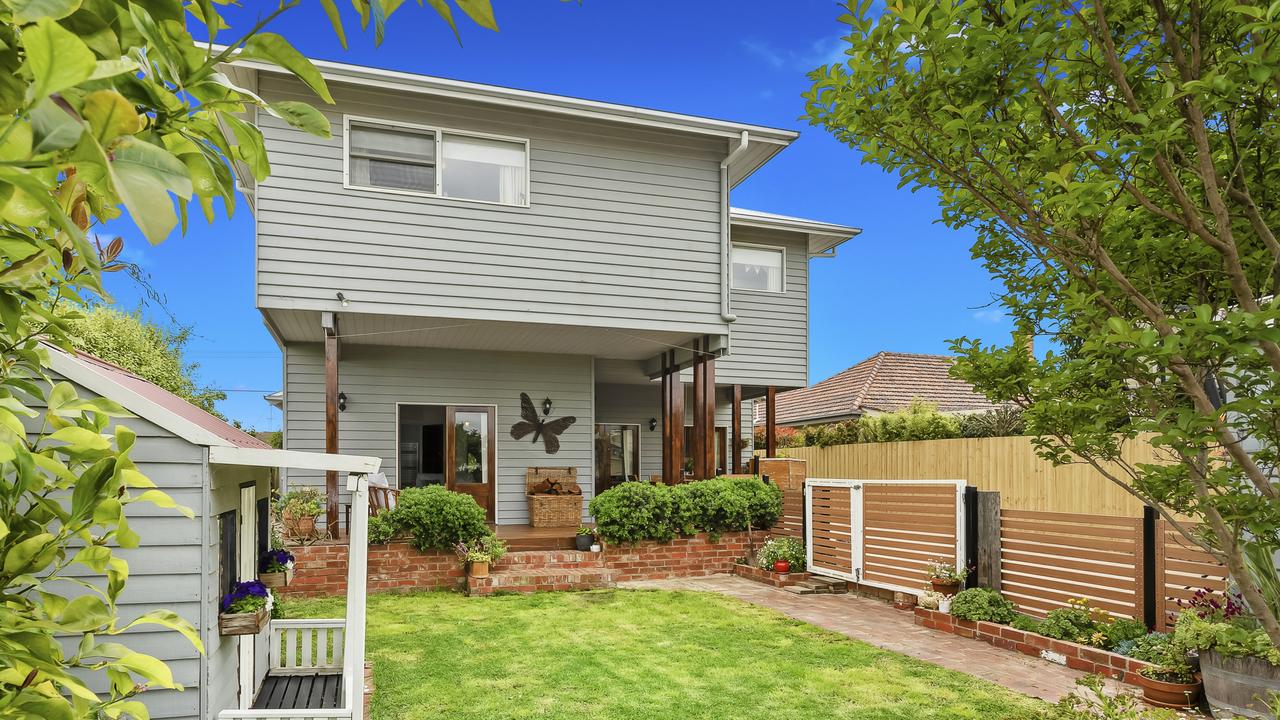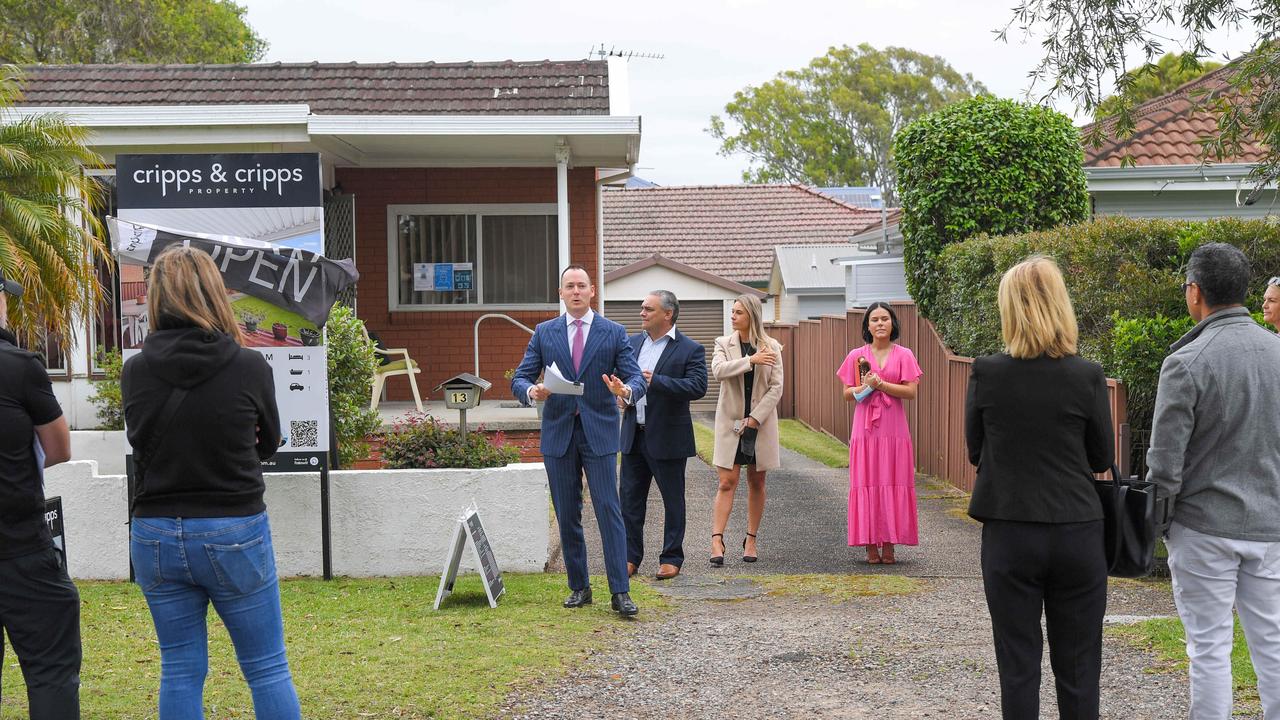House prices growing faster than aspiring homeowners can save but there is hope
House prices in Australia’s major cities have skyrocketed and Aussies would have had to save an extra $100,000 last year just to keep up.
House prices are increasing much faster than people can save with the deposit for a median property in Sydney rising by almost $100,000 in just one year.
The median house price in New South Wales’ capital city is now $1.5 million, according to the latest figures from REA Group.
Just one year earlier, in December 2020, the median price was $1 million. Skyrocketing values have meant the deposit required to buy (with a 20 per cent deposit) has jumped from $209,500, to $304,000.
The size of deposits required also soared in Canberra ($56,000 higher), Hobart ($43,275) and Melbourne ($43,000).
The increases have left aspiring homebuyers struggling to keep up, even despite the extra money many have been able to save thanks to being homebound during the Covid pandemic.
Rising rents, cost of living pressures and low interest rates are also starting to make it even harder to save.
The latest inflation figures show the prices of everyday goods in Australia rose by a total of 3.5 per cent in 2021, partly fuelled by a 6.6 per cent surge in fuel prices. There are warnings food prices could soar this year.
Atelier wealth managing director and mortgage broker Aaron Christie-David told news.com.au that government incentives were likely inadequate in the face of current property prices.
“House prices are far exceeding people’s ability to pay,” he said.
“If their savings cannot keep up with the property market, then they won’t be able to get the foot in the door.”
The First Home Loan Deposit Scheme, which sees the Federal Government acting as guarantor to buyers, is capped at properties worth $800,000 in Sydney, $700,000 in Melbourne and $600,000 in Brisbane.
The NSW’s stamp duty waiver is capped at $650,000, with discounts provided up to $800,000.
The heated property market is especially challenging for young people, who may not be earning high wages, limiting the amount they can borrow. They were also often renting, limiting how much they can save and basically keeping them in a “rent trap”.
“They can get disheartened and quite often if they don’t have a clear plan, they’re going to give up but that is not the solution, the solution is to get in the market and buy what they can afford,” Mr Christie-David said.
This could mean buying a cheaper “stepping stone” property, or an investment property they can afford.
“Once you get in market, you have an asset that’s increasing in value,” he said.
Another option for people who are very close to having enough for a deposit, is to accept paying lenders mortgage insurance.
Mr Christie-David said insurance may cost around 2 per cent of the loan amount but if property prices are growing by around 1.5 per cent each month, this may have paid for itself by the time the property settles, which generally takes six weeks.

It’s also possible to find lenders who won’t charge mortgage insurance if people have a 15 per cent deposit and for people in certain professions such as doctors, lawyers and accountants to borrow up to 90 per cent of the purchase price without paying insurance.
Mr Christie-David said paying off debt such as credit cards, personal loans and even HECS debt could increase borrowing capacity. While it would decrease the amount of the deposit available, it may actually increase the amount someone can borrow by a larger amount.
“Speak to your bank or broker to see whether it’s worth paying off your debt. Is the borrowing capacity more important or is the cash more important?”
Another thing that can hold first home buyers back is concern about having enough money to service the loan, especially with interest rate rises predicted.
Mr Christie-David said it was important to remember that banks will already have stress tested people’s ability to repay loans for rates of around 5.5 per cent and even higher.
“We are talking about rates that are sub 3 per cent, to get to 6 per cent is generally a long time away,” he said.
“If you are worried about rates then chose a fixed loan, it’s a good way of buying three years of certainty.”
Mr Christie-David said people should also question their other assumptions, such as whether it was really necessary to have three months worth of living expenses in savings.
He said the banks generally do the worrying for you and by worrying too much, this can hinder some from buying their first homes.

Of course there is also the “bank of mum and dad”, although Mr Christie-David acknowledged not everyone had access to this.
For those that did, he believes it is a good option as property prices are going up so quickly, guarantor loans were being released within 12 months.
“It doesn’t have to be a long term solution that impedes on the parents’ financial situation either,” he said.
“Often you’ll see that a kid will want to do it on their own but there’s no shame in accepting the help sometimes. If the parents are willing to help then take that, use it and pay it back as quickly as possible.”
Some may prefer to “sit and hold” and Mr Christie-David said this was an option but it wasn’t a strategy because it was not guaranteed.
“We are still expecting to see property prices grow 10 to 12 per cent in some markets,” he said.
Even if prices did start to fall, the market would have peaked anyway and any fall will come off higher prices anyway.
Rather than holding, Mr Christie-David said people could get into the market, either paying lenders mortgage insurance or buying something they could afford, they could also rentvest or get family support.
While the situation may seem bleak for some first home buyers, Mr Christie-David said it was not a new phenomena.
“There are articles dating back to the 50s, 60s and 70s talking about how hard it is for first home buyers,” he said.
“What people are more likely to regret is not getting into the market sooner, not that they bought the wrong property.
“Don’t take no for an answer, if the bank says no, go to a buyers agent or broker, surround yourself with people who have done it and can help you on that journey as well."
Originally published as House prices growing faster than aspiring homeowners can save but there is hope





